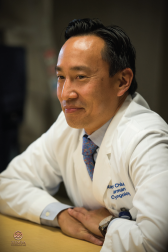 Our cover story this month hits on a subject that will affect all of us. The issues around when to stop operating are complex. Why do people stop operating? Is it financial, physical, and/or emotional? Is it part of a need to do something different and to make an impact on another sector of life? Or is it a symptom of physician burnout, when we have lost the joy and satisfaction of operating?
Our cover story this month hits on a subject that will affect all of us. The issues around when to stop operating are complex. Why do people stop operating? Is it financial, physical, and/or emotional? Is it part of a need to do something different and to make an impact on another sector of life? Or is it a symptom of physician burnout, when we have lost the joy and satisfaction of operating?
Explore This Issue
August 2018Even though I graduated from residency in 2002 and am categorically “mid-career,” I often do think about the next stage of my career. Will I retire at a younger age so that I can pursue a different profession? Do I back away from some types of surgeries because they are too long or require a level of endurance I may no longer have? Thinking about these questions is good no matter what your stage of career. The decisions you make and actions you take today will certainly impact this decision that awaits you in the future.
This past month, I got to see a little bit of my own mortality. After an otherwise ordinary weekend afternoon on the golf course, my left knee began to swell. That swelling persisted and resulted in an MRI and visit to my neighborly orthopedic surgeon. The diagnosis was a medial meniscus tear and a small degree of osteoarthritis in my knee. When I asked how this could happen when I didn’t remember a causal act of falling or trauma, his response was, “Sorry, but you are getting old.”
The reason I bring up this slightly embarrassing story is because are hundreds of things we do every day to our bodies that may put our physical work longevity at risk. As surgeons, our risk is compounded by the physical demands of wearing a headlight, looking into a small space, or standing on our feet for a 12-hour surgery. The importance of ergonomics in our field is now being recognized. A recent survey of 377 otolaryngologists from around the country reported a 64% incidence of work-related musculoskeletal symptoms. The majority of these physicians began to experience symptoms in residency and fellowship, and the neck and shoulder were the most commonly affected body areas. Despite the frequency of these complaints, only 33% of surgeons were formally taught or actively sought information on ergonomic principles. For those who had, nearly 70% experienced improvement in their symptoms (Laryngoscope. 2018;128:632–640).